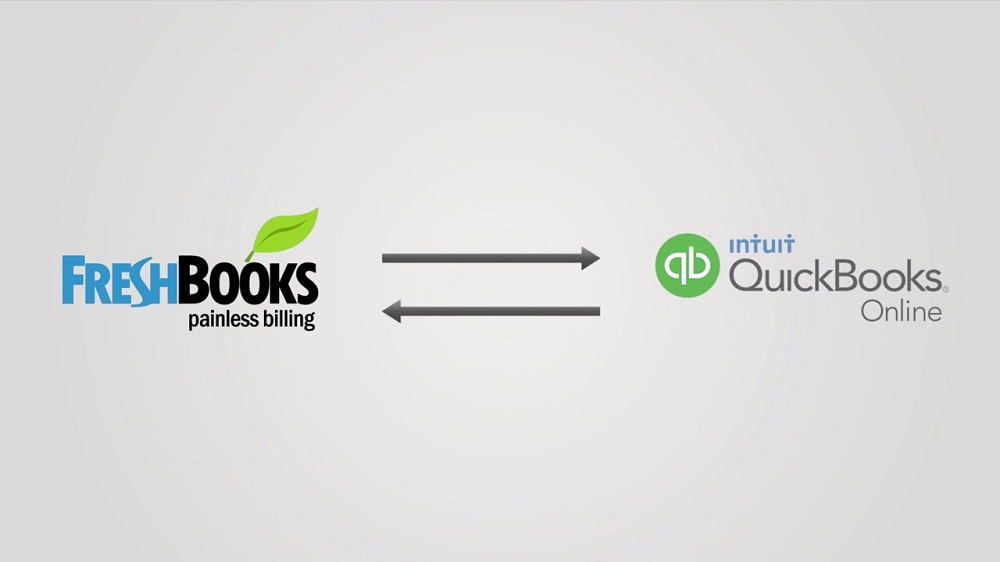Here’s a showdown between QuickBooks vs FreshBooks to check out the best Accounting Software.
Selecting and implementing the right accounting software can be a crucial factor for small and growing businesses. While some enterprises may prefer the good old practice of maintaining accounting books and spreadsheets, staying ahead of the competitive market needs an accounting platform such as FreshBooks or QuickBooks Online.
QuickBooks vs. FreshBooks has often been a scenario for business owners when selecting the most reliable, robust, and secure accounting software for their company. Although the two accounting platforms have been mostly successful, choosing one over the other comes down to the fact that FreshBooks is primarily an invoicing software, whereas QuickBooks is a comprehensive accounting platform.
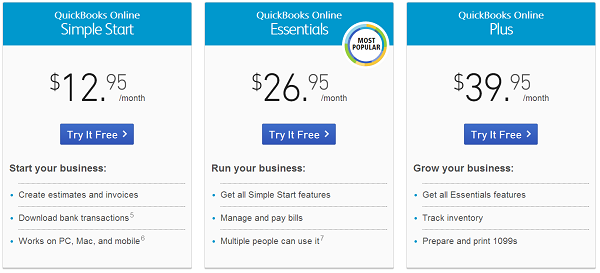
QuickBooks vs FreshBooks – Accounting vs. Invoicing software
While both FreshBooks and QuickBooks Online are passed around in the same category, their core purpose differs significantly. FreshBooks is essentially an invoicing software, allowing you to track your expenses with in-depth analysis and reports. Since QuickBooks is all-round accounting software, it comes with the features of typical invoicing software, along with several other bookkeeping tools.
Apart from invoicing features, some of the fundamental characteristics of QuickBooks online are:
- Double-entry (invoicing and expenses) accounting.
- Accounts payable (keeping track of the money owed to vendors for items purchased on a line of credit).
- Full bank reconciliation with auto-categorization to save a lot of time.
- Job costing to track the profit and loss for individual projects and personnel.
- Inventory tracking to manage items stock and their worth.
QuickBooks vs FreshBooks Online – User Plans and Permissions

Both QBO and FreshBooks both offer plans for single-user and multi-user, with a branched pricing structure. FreshBooks enables you to choose from a 1-user, 2-user, and 6-user plan, while QuickBooks comes with 1-user, 3-user, and 5-user plan. However, when it comes to user permission, FreshBooks does not have any specialized settings at all, giving all the users the same permissions.
On the other hand, QuickBooks Online offers permission settings so you can choose which member of your staff is allowed to view and manage certain operations. For instance, you can give one user permission to view and process invoices, while restricting the rest of the staff from editing timesheets or entering data.
Winner: QuickBooks Online
QuickBooks vs FreshBooks – User-Friendly
Since the accounting software is made for the end-user and not experts, you will find QBO and FreshBooks relatively easy to get started with. Despite the smooth interface and simple setup procedure of both the software, QuickBooks tends to be a bit complicated to get used it.
The extensive suite of options and features and a rudimentary navigation panel affect the interface. Whereas FreshBooks offers a clean and precise user interface with simplified invoicing options for ease of use.
Winner: FreshBooks
QuickBooks vs FreshBooks – Pricing structure
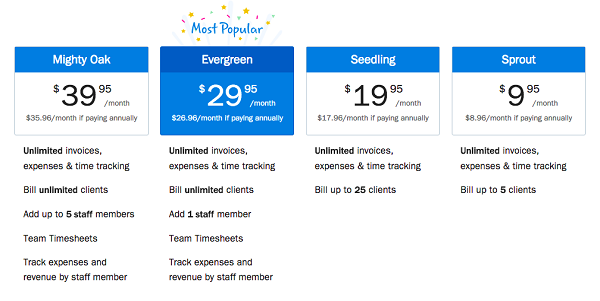
FreshBooks and QuickBooks follow the typical three-tier pricing structure based on a monthly payment plan. Despite being a one-track invoicing software, FreshBooks is priced considerably higher than QBO on single-user, multi-level, and top-tier programs as well.
Plan Type
QuickBooks
FreshBooks
Free plan
N/A
One client only
Single-user plan
$12.95/month
$19.95/month
Mid-level plan
$26.95/month
(3 users)
$29.95/month
(2 users)
Top-tier plan
$39.95/month
(5 users)
$39.95/month
(6 users)
QuickBooks Online offers far more accounting features for a less expensive pricing plan. However, FreshBooks does offer a “Sprout” plan available to users free of cost. But since the free program allows you to manage invoicing solutions for only one client, it beats the purpose of having accounting software in the first place.
Winner: QuickBooks
QuickBooks vs FreshBooks Online – Features and options
As discussed earlier, QuickBooks is, by all means, an accurate accounting software, whereas FreshBooks classifies only as an invoicing software. While FreshBooks may offer simplified and better-invoicing features than QBO, it does not come close to the number of bookkeeping features of the latter. With that being said, FreshBooks does offer added invoicing options that aren’t found in QuickBooks, such as automated client emails and team timesheets.
Product Features
QuickBooks
FreshBooks
Inventory tracking
Yes
Yes (very basic)
Accounts payable
Yes
No
Job costing/tracking categories
Yes
No
Double-entry bookkeeping
Yes
No
Bank reconciliation
Yes
No
Sales tax support
Yes
Yes (limited)
Auto-billing
No
Yes
Client portal
No
Yes
Multi-currency support
No
Yes
Automated payment reminders
No
Yes
Automated receipts & thank you notes.
No
Yes
Automated late payment fees
No
Yes
Winner: QuickBooks Online
QuickBooks vs FreshBooks Online – Customer Support
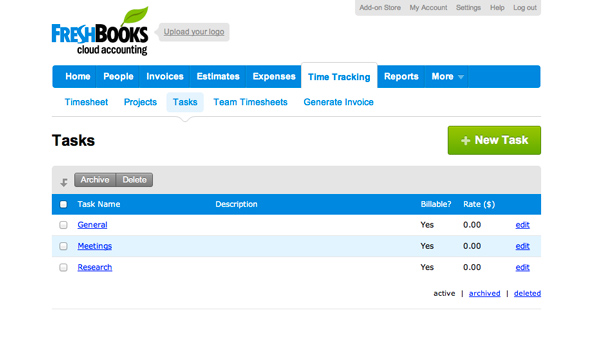
Being a decades-old accounting software, QuickBooks holds a majority of market share. Despite being widely used, QBO has not been universally popular among users, with an overall neutral outlook of users towards its customer support. However, you will always find QuickBooks being loved for its unique bank integration options, such as the automated expense reconciliation feature.
Despite being pricier than QBO, FreshBooks is a people pleaser, with a strongly positive review score and is regularly praised for excellent customer support. Since the service offers multiple add-ons for online payment, FreshBooks has been a go-to invoicing software for users.
Winner: FreshBooks
The Final Verdict
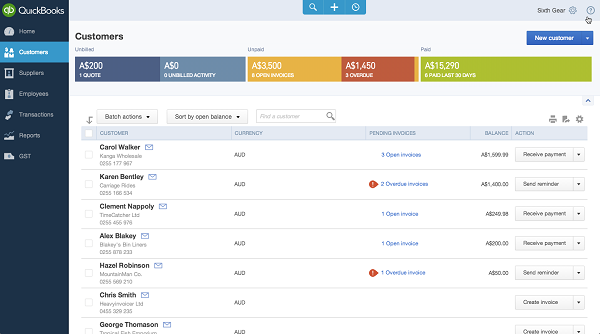
QuickBooks vs FreshBooks will always be an unfair comparison since FreshBooks is not built as an accounting software (although it is marketed so). The number of bookkeeping features, including invoicing features, puts QBO leagues ahead of FreshBooks in terms of performance and usability. Even the price factor favors QuickBooks, although FreshBooks gives you a peek into its software with the free version.
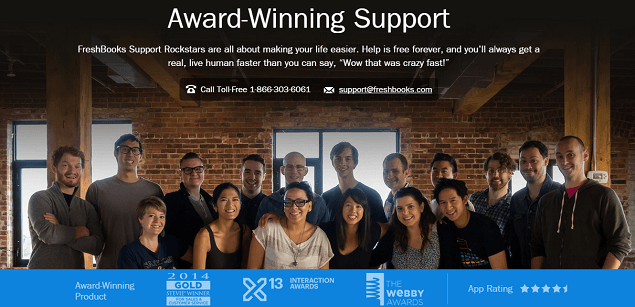
Comparing the invoicing features of QuickBooks and FreshBooks clearly shows that the latter offers a better user interface, better features, and hassle-free operation. But since this comparison is based on accounting software needs and not just invoicing, QuickBooks Online is a clear winner.
